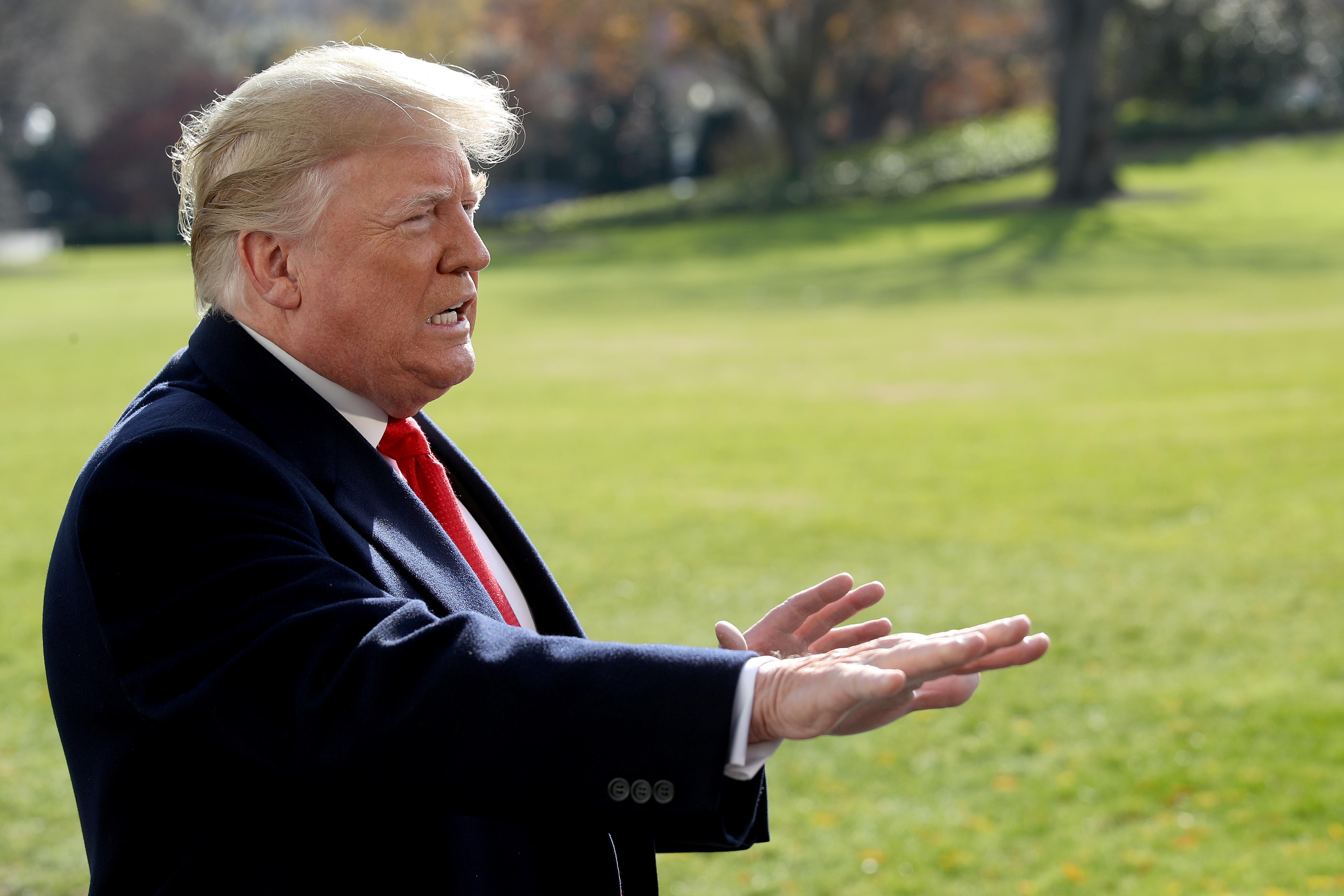Michael Cohen pleaded guilty on Thursday to lying about the extent of his efforts during the 2016 presidential campaign to strike a deal to build a Trump Tower in Moscow. Cohen, who served as Donald Trump’s personal attorney and longtime fixer, told two congressional committees last year that the Trump Organization had abandoned the project in January 2016, but he now says that in reality the work continued into that summer—after Trump was well on his way to the Republican nomination. Cohen also admitted to having contact with a Russian official about the deal, which he previously denied, and to briefing Trump and his family about it more often than he had previously claimed.
Why would Cohen lie about all of that? To protect Trump, a man he once declared he’d “take a bullet for.” Or as the Robert Mueller-led prosecution put it: to “minimize links between” the president and the project and to “give the false impression” that Trump’s eponymous company killed the deal before the first votes were cast in the 2016 GOP nominating contest, “in hopes of limiting the ongoing Russia investigations.”
Trump, though, has a different theory. “[Cohen is] lying about a project that everybody knew about,” the president told reporters on Thursday. “We were very open with it. We were thinking about building a building. … There would have been nothing wrong if I did do it. If I did do it, there would have been nothing wrong. It was my business. So he’s lying very simply to get a reduced sentence, OK?”
There’s some truth to that first part (twist!), but that truth has little to do with the heart of this matter—which isn’t that Trump and his team considered building a Trump Tower in Moscow but when they were working with the Russians to try to make it happen.
Trump’s desire to slap his name on the side of a skyscraper in the Russian capital was hardly a secret. He reportedly considered several potential sites for a project as far back as the 1980s, before the fall of the Soviet Union, and he even went as far as to announce plans to invest $250 million in two luxury buildings in Moscow nearly a decade later. “Russia is one of the hottest places in the world for investment,” Trump said in a 2007 deposition. “We will be in Moscow at some point.” And he even tweeted about it back in 2013:
More recently, the WOW-worthy Emin Agalarov, a Russian pop star and real estate mogul whose Kremlin-connected family has done business with Trump before, told Forbes last year that the project eventually progressed to the point where he and his dad, Aras, had picked out a specific spot for the tower, and even signed a letter of intent with the Trump Organization at some unspecified point prior to Trump launching his campaign in the summer of 2015. “He ran for president, so we dropped the idea,” Agalarov said in March 2017. “But if he hadn’t run we would probably be in the construction phase today.”
That Trump once pursued the deal, though, isn’t the issue. The issue is whether his team was still pursuing the deal for longer than they claimed, and for far longer than Trump has repeatedly implied with his intentionally misleading claims.
The trouble for Trump is that Cohen isn’t the only one who can testify to this new timeline. Details of it have been coming out in dribs and drabs for more than a year. And Buzzfeed News published an extensive report in May that detailed the two major things that Cohen has now admitted to: That he continued to pursue the project through the first half of 2016, and that he was willing to travel to Russia to help close the deal and considered asking Trump to come along. (The third thing Cohen admitted to Thursday was speaking by phone with an official in Vladimir Putin’s press office about the project, something he had told lawmakers last year he couldn’t recall.) That report included texts and emails between Cohen and former Trump associate Felix Sater, who likewise confirmed to BuzzFeed that the deal was still alive far longer than Team Trump had claimed. Cohen’s new timeline, then, isn’t new but instead likely confirms what Robert Mueller and his team already knew.
